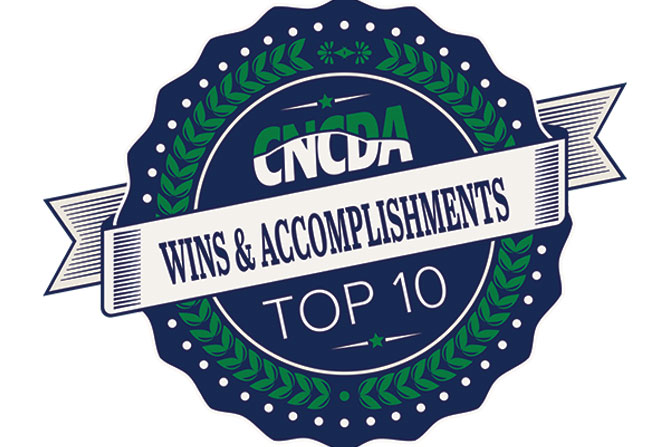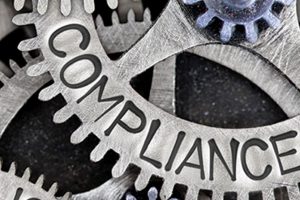By Jenny Dudikoff, Director of Public Affairs and Communications
- Strengthened Franchise Laws
a. AB 179 (2019). Overcoming significant manufacturer opposition, the unanimous passage and signature on AB 179 was a significant step forward in CNCDA’s commitment to a stronger new motor vehicle franchise system. AB 179 significantly strengthened and updated California’s new motor vehicle franchise laws by enforcing accountability for unlawful treatment by manufacturers, addressing dealers’ inappropriate treatment and conforming California franchise laws to recent actions in other states, most notably retail warranty reimbursement.
b. Franchise Law Updates (2009, 2011, 2013). Additionally, in 2009, CNCDA worked on updating the state’s franchise laws to conform California to most states’ rules in the areas of termination assistance, dualing, facility improvements and statutory indemnity. Also, it provided limited relief to Chrysler dealers terminated in bankruptcy. In 2011, CNCDA successfully updated dealer franchise laws to prohibit waiver of dealer protect rights, reduce unfair competition against dealers by factory-owned stores, and prohibit mandates for the use of factory approved vendors for service contracts and GAP agreements. In 2013, more updates to dealer franchise laws were made to provide a rebuttal presumption for dealers who sold or leased a vehicle that is exported and restricts the expansive and unreasonable performance standards evaluated on dealers. It also modified warranty repair and incentive rules regarding an appeal process with a right to cure, a 15-day written notice to changes to the warranty reimbursement schedule, and limits audit requirements of records to nine months.
c. Established Association Standing at the New Motor Vehicle Board (2015-2017). In response to Jaguar Land Rover North America’s (JLRNA) egregious export and sale-for-resale policy, CNCDA was granted the Legislature’s authority to bring the first-time-ever protest at the New Motor Vehicle Board on behalf of all their Jaguar Land Rover dealers. In November 2017, the California New Motor Vehicle Board (NMVB) declared JLRNA export policy violates California law. The NMVB’s decision marked the conclusion of the first protest CNCDA filed with the NMVB. - Proposition 64 (2004). Raised $5.8 million in direct dealer contributions and co-led the statewide coalition to support the successful ballot initiative to curb shakedown lawsuits.
- TrueCar Settlement (2017). Two and a half years after the initial lawsuit was filed against TrueCar, CNCDA achieved the most significant legal victory in the Association’s history. CNCDA sued TrueCar in 2015, challenging the company’s lack of licensure in the state of California. As a direct result of the lawsuit, TrueCar changed its business model and paid CNCDA more than $1.5 million in legal fees.
- Doc. Fee Increase, EVR Mandate and Title-Brand Notices (2011). Increased cap on the doc processing charge from $55/sales and $45/leases to $80 while allowing pass-through of hard costs for Electronic Vehicle Registration (EVR) mandate. By requiring a check of federal salvage, junk and title-brand database, we ensured competition for CarFax while providing consumer benefit with red notices on vehicles our members don’t want to sell anyway.
- Petition and DMV Accusation against Chrysler for Downtown LA Factory Store (2011). Successfully persuaded NMVB to order DMV to investigate Chrysler for its ownership of the Motor Village LA store. DMV accused Chrysler of violating the law and lying to investigators. DMV ordered Chrysler to sell its store to an independent dealer and assessed nearly $1 million in penalties.
- Car Buyer’s Bill of Rights Compromise (2005). Prevented the qualification of a much more onerous initiative measure with a 3-day cooling-off period and financing limitations.
- Contributed over $5.3 million in Direct Contributions to Dealer Friendly Candidates in California (2003-2020). CNCDA PAC — through the generous support of our dealers — has helped to elect and retain legislators and state officeholders who share our pro-dealer political philosophy.
- Twice Stopped Bill to Impose Burdensome Mandatory Recall Repair Mandate Only on Dealers (2013 and 2014). Bill would have prohibited dealers from selling or leasing any vehicle subject to a manufacturer’s recall until repaired, with many other problems including the lack of an operating recall database, absence of liability protections and an exemption for rental car companies.
- Struck a Compromise on Temporary License Plate Legislation (2016). Toll-taking agencies sought immediate identification of vehicles, but their flawed bill would have imposed burdensome requirements on dealers, DMV and consumers. CNCDA negotiated a compromise where dealers would get a $5 increase in the doc fee for all vehicles sold in exchange for dealers installing temporary plates on vehicles lacking license plates.
- COVID-19 Response Efforts (2020-current). As the global pandemic struck in early 2020, California’s franchised new-car dealers faced an enormous amount of uncertainty and confusion in their day-to-day business operations. CNCDA quickly developed internal protocols, systems, and materials to communicate with members on critical compliance information frequently and effectively. These member-only resources included daily Coronavirus email updates, a Coronavirus Dealership Resources webpage dedicated to keeping dealers up to date in real time, a member-exclusive toolkit — Restarting California’s New Car Dealerships in the Wake of COVID-19, Coronavirus compliance guidance and materials on vehicle sales, health requirements, employees, government benefits, forms and notices, vehicle registration and franchise issues, and free Coronavirus webinars regularly. Keeping dealers updated with the most relevant information was the primary focus for CNCDA through the pandemic’s height and remains a priority as our members continue to navigate the ever-changing landscape related to the pandemic while continuing to serve their customers as safely as possible.





